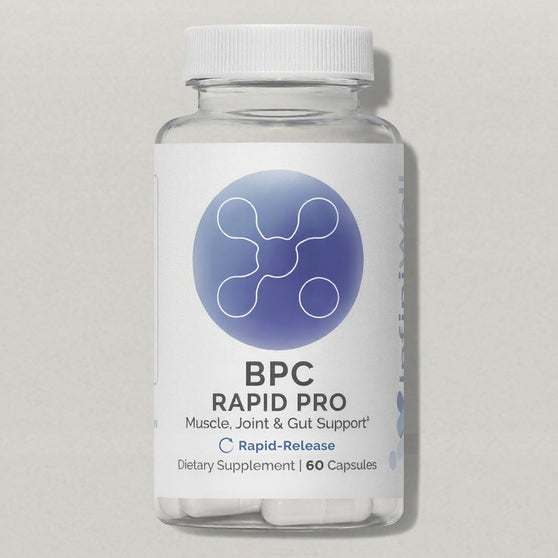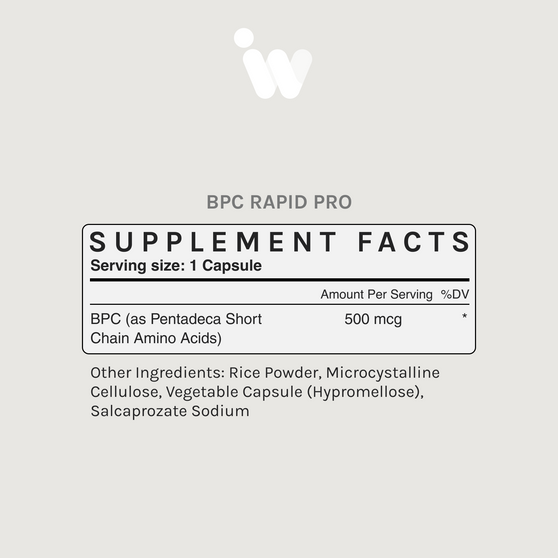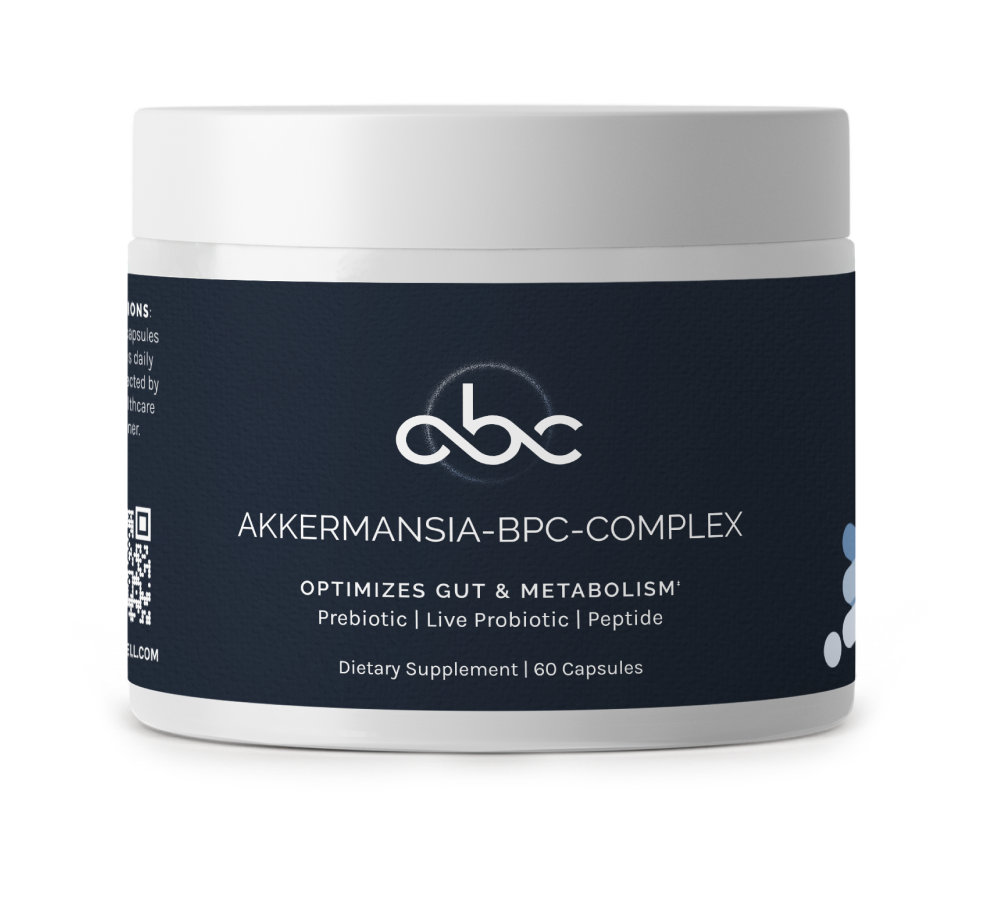Key takeaways
-
Sleep peptides like delta sleep-inducing peptide (DSIP) are generating interest for their potential to support deep, restorative rest. But many users report next-morning grogginess or lingering fatigue. This has led to questions about whether these supplements actually improve sleep quality or just make you feel sedated.
-
Critics point to a lack of strong clinical evidence, especially in humans. While some early studies suggest DSIP helps regulate sleep, most findings come from small trials with mixed outcomes.
-
Grogginess doesn’t necessarily mean a sleep peptide failed. It may reflect poor timing, overly high amounts, or interactions with other medications. That distinction is often missing from popular conversations around sleep supplements.
-
Some sleep-supportive supplements use natural ingredients like magnesium or L-theanine to support stress response, circadian rhythms, and nighttime relaxation. This approach may offer more balanced sleep support than relying on peptides alone.
-
DSIP and similar compounds are still being studied for their potential to address sleep disturbances, emotional stress, and long-term sleep health. But with limited evidence, it's best to exercise caution and prioritize well-sourced, research-backed formulations.
“Sleep peptides” are getting more attention lately, with promises of deeper rest and smoother nights. But some people aren’t convinced. Do these supplements really support sleep quality—or just leave you feeling drowsy?
Let’s unpack the claims, concerns, and what sleep research really says.
But first, what are sleep peptides?
Sleep peptides are short chains of amino acids studied for their potential to support the body’s natural sleep-wake cycle. One of the most well-known is delta sleep-inducing peptide (DSIP), which researchers discovered in the 1970s and have since explored for its influence on circadian rhythms, neuroendocrine function, and sleep regulation.
Unlike herbal remedies (such as valerian root or chamomile) that work through plant-derived compounds or melatonin supplements that directly influence your body’s sleep hormone levels, peptides may act on signaling pathways in the brain and body. Rather than sedating, they're thought to support internal systems that govern when and how we sleep.
That said, most sleep aids fall into a few broad categories:
-
Sedatives: Often prescription-based, used to induce sleep quickly but may cause side effects or dependency.
-
Hormone-based supplements: Like melatonin, which mimic or boost natural hormones to encourage sleepiness.
-
Herbal remedies: Plant-based formulas that may help reduce emotional stress or promote relaxation.
-
Peptides: Natural compounds being studied for their potential to support sleep by influencing hormone activity and pain perception.
Early research—especially in animals—shows some promise, but sleep peptides are still under evaluation. They may affect people differently than more familiar sleep aids like melatonin or magnesium, so it’s important to understand how they work before adding them to your routine.
What people are saying: Grogginess, dependency, and lack of proof
Critics of sleep peptides often raise four recurring concerns.
"They just make you feel sedated, not truly rested."
Some users describe feeling groggy or sluggish the next day, mistaking that fog for poor-quality sleep. The concern is that these supplements may mimic the effects of rest without actually improving sleep architecture, leaving people exhausted instead of truly restored.
"There’s no solid proof they work."
Many of the peptides used in sleep supplements, especially DSIP, are still under investigation. Critics argue that current data is too early, inconsistent, or limited in scope to draw real conclusions about their effectiveness in humans.
"What even is DSIP?"
DSIP, first isolated from rabbit brain extracts in the 1970s, is a neuropeptide studied for its potential effect on sleep-wake control. Researchers have found traces of it in human plasma and cerebrospinal fluid, but how it functions in the body—and whether taking it as a supplement truly promotes better sleep—is still being explored.
"It’s not regulated, so how do I know what I’m taking?"
As with many dietary supplements, quality and sourcing can vary widely. Without strict regulation, especially in online markets, concerns about purity and manufacturing standards are valid, especially for something as sensitive as sleep support.
What’s true: The science is early and mixed
There are reasons to be cautious:
-
DSIP has shown up in sleep research and animal studies for its potential influence on circadian rhythms and neuroendocrine function, but human trials are limited.
-
Some reports suggest human plasma DSIP decreases with stress, alcohol use, or certain medical conditions, but whether supplementing reverses that is still unclear.
-
A double-blind study found mixed results in chronic insomniac patients. In some cases, DSIP showed promise; in others, no statistically significant effect on deep sleep was observed.
So yes, there’s limited evidence, and sleep peptides aren’t a guaranteed solution.
What’s missing from the conversation
The discussion around sleep peptides often skips over important distinctions, like the difference between temporary sedation and real, sustained sleep support.
Not all sleep is restorative
Sleeping longer doesn’t always mean you’re getting better rest.
Timing a supplement too early or too late, taking more than the recommended amount, or combining it with other medications can interfere with your natural sleep cycle—making it harder to reach or stay in deep sleep. And without those restorative stages, even a full night in bed might not leave you feeling refreshed.
What works for one person may not work for another, especially when medical conditions or other medications are involved.
It’s better to support circadian rhythms than override them
Unlike sedatives, natural sleep aids are often designed to work with the body’s internal clock, not override it. This distinction matters. Your body’s sleep-wake cycle follows a 24-hour rhythm (sometimes called circadian times), and throwing that off with substances that sedate instead of synchronize can backfire.
Some peptides, like DSIP, have been explored for their effect on the body’s circadian rhythm, but their role in the sleep-wake cycle is still unclear. Their influence on how the brain and hormones interact during sleep isn't fully understood.
Multifactor blends may offer better balance
Some supplements for deep sleep include peptides at modest levels, combined with familiar ingredients like magnesium or L-theanine. These combinations aim to address root causes that often interfere with staying asleep, such as stress, body temperature dysregulation, or emotional tension.
These formulas may also be gentler on the body and easier to adjust based on your needs. By working alongside your natural sleep cycle instead of suppressing it, they can support better rest without causing next-day fatigue or masking deeper issues.
DSIP could offer support, but we’re not there yet
Some animal studies suggest DSIP may have a potent antinociceptive effect (it might reduce pain perception), which could theoretically contribute to better sleep in people dealing with sleep problems linked to arthritis pain or physical discomfort. But these effects haven’t been confirmed in large human trials.
So while DSIP shows some potential, it’s not a guaranteed solution. The best outcomes often come from a combination of consistent sleep habits, well-formulated supplements, and support for your body’s natural rhythm.
The takeaway: Be curious but cautious
Not all supplements for deep sleep are created equal, and peptides aren’t guaranteed sleep solutions. But they’re also not just “fake melatonin,” either.
If you have trouble sleeping, it’s worth talking to a healthcare provider about options that address the why behind your sleep disturbances, whether that’s stress, circadian misalignment, or another root cause.
A quality sleep peptide might support your sleep cycle, but it’s not a replacement for good sleep habits.
Want better rest without jumping into peptide supplements?
InfiniWell’s sleep and mood collection offers a science-backed approach to better rest. These formulas combine ingredients like DHH‑B, L‑theanine, and magnesium—known to support relaxation, circadian balance, and mood—without the unpredictability of experimental peptides.
They’re designed for people who want restful nights without groggy side effects, questionable sourcing, or guesswork.
Also read:
-
Your Peptide Stack Isn't Working? More Might Not Be the Answer
-
Forever Young? The Overlooked Side of Peptides for Longevity
-
Peptide Stacks: Optimized Performance or a Biochemical Gamble?
Glossary
Key terms to know:
-
Circadian rhythms: The body’s internal 24-hour clock that helps regulate sleep, hormone production, and other biological processes.
-
Deep sleep: The stage of sleep when the body and brain experience the most restorative benefits, crucial for physical recovery and memory processing.
-
Delta sleep-inducing peptide (DSIP): A naturally occurring peptide first isolated in the 1970s, investigated for its potential role in promoting deep sleep and regulating circadian rhythms.
-
L-theanine: An amino acid often derived from tea leaves, known for promoting relaxation and reducing stress without causing sedation.
-
Magnesium: A mineral that plays a role in muscle relaxation and nervous system regulation, commonly used in sleep support formulas. See InfiniWell's Activated Magnesium.
-
Neuroendocrine function: The interaction between the brain and hormone-producing glands that helps regulate sleep, stress, metabolism, and more.
-
N-methyl-D-aspartate (NMDA) receptors: Brain receptors involved in nerve signaling, memory, and sleep regulation; sometimes targeted in sleep and neurological research.
-
Potent antinociceptive effect: A strong reduction in the sensation of pain, potentially contributing to improved sleep in those experiencing physical discomfort.
-
Sleep architecture: The structured progression through various stages of sleep (including deep and REM sleep) that determines sleep quality.
-
Sleep peptide: A short chain of amino acids studied for its ability to influence sleep-wake cycles by acting on internal signaling pathways in the brain and body.
-
SOURCES





















